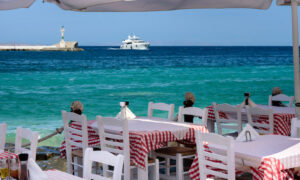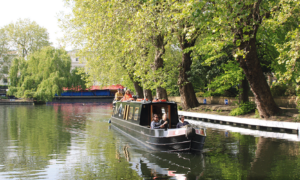I am a big city gal: I’ve lived in Singapore, Casablanca, Paris and London. Speed-walking through a crowd has got to be one of my top three hobbies, and spending less than 45 minutes in public transports to go meet a friend is surprising. So anyways, before moving to Geneva – 200,000 inhabitants, aka a village – I looked at the Top 10 things to do there and was absolutely appalled, if not terrified (have a look if you want a good laugh).
When “head into the mountains” makes it to No. 8 of the Top 21 things to do in a city, run!
I had rejected a job opportunity in Lisbon in favour of the Peace Capital, and was seriously wondering whether I’d made the right choice.
However, as soon as I moved there, I was won over its cosmopolitan and artistic appeal, sporty feel, historical interest, quietness and dynamism. Geneva really does surprises and contrasts in spades. The city is home to numerous museums, art galleries, theatres, and an opera house, but also has a fascinating history, with its medieval quarter, the famous Jardin Anglais, nonchalant terraces, whilst being a perfect place for sports enthusiasts.
The well-connected epicenter of Europe
Before I moved here, my friends kept telling me that Geneva was empty on the weekends because it was such a boring city, and that everyone wanted to escape. HAH! That genuinely sounds hilarious now that I’ve been living here for a few months.
Sure, people travel a lot on weekends, myself included, but not because Geneva is boring: they travel a lot because they can! They have the spending power to travel, and on top of that the city is incredibly well connected.
The airport is a seven-minute train ride from the central train station, and a plethora of trains to Paris, Lyon, Milan, Zurich, you name it, leave on a regular basis. After living in London, being able to reach the airport in under 20 minutes seems unreal, and makes travelling a piece of cake.
Further, easy and common travelling also means the international community in Geneva is vibrant. It is home to some of the world’s best known organisations such as the United Nations, the World Health Organisation and the Red Cross, and there are about 190 different nationalities in the canton, or state, of Geneva.
In a nutshell, I love the fact that it’s international without being hectic: there isn’t crazy traffic or crowds which is very appeasing after living in London and Singapore, but it remains very diversified and dynamic.
There is ALWAYS something to do, all year round
As the gateway to the Alps but also to the Lake Geneva (Lac Leman), Geneva offers a range of activities all year round. Whether it’s skiing, snowshoeing, sailing or hiking, you cannot get bored. If sports isn’t your thing, Geneva also happens to be the city in Europe that devotes the largest share of its budget to culture.
Weekends in summer are punctuated by sailing, tanning sessions Lake Geneva’s beaches and floating down the Rhône River on swim rings whilst sipping a cocktail, whereas in winter you can ski, snowboard, snow-shoe or eat fondue on the lake at the Bain de Pâquis, the latter being my favourite activity.
(Life hack: instead of using white wine in your fondue use Prosecco, thank me later.)
Breathtaking (in both senses of the word) hikes can also be done all year round and are very accessible from Geneva.
All in all, Geneva is the city I have felt the happiest and most settled in. It has everything you could ever want, and more: a great life quality, healthy work rhythm, a plethora of activities to suit everyone’s tastes, a thriving international community and it is well connected.
I definitely won’t mention the fact that you can literally see the Mont Blanc whilst strolling the streets, that Geneva is very safe or that the working culture is unusually healthy and sane.
So, when are you moving to Geneva?
After completing her Digital Anthropology Masters at University College London (UCL) Pauline Lemaire currently is based in Geneva, Switzerland. Pauline grew up in Singapore and Morocco, but her family has now relocated to Paris.
She holds a bachelor’s degree in French Literature and Philosophy from the University of Oxford.















